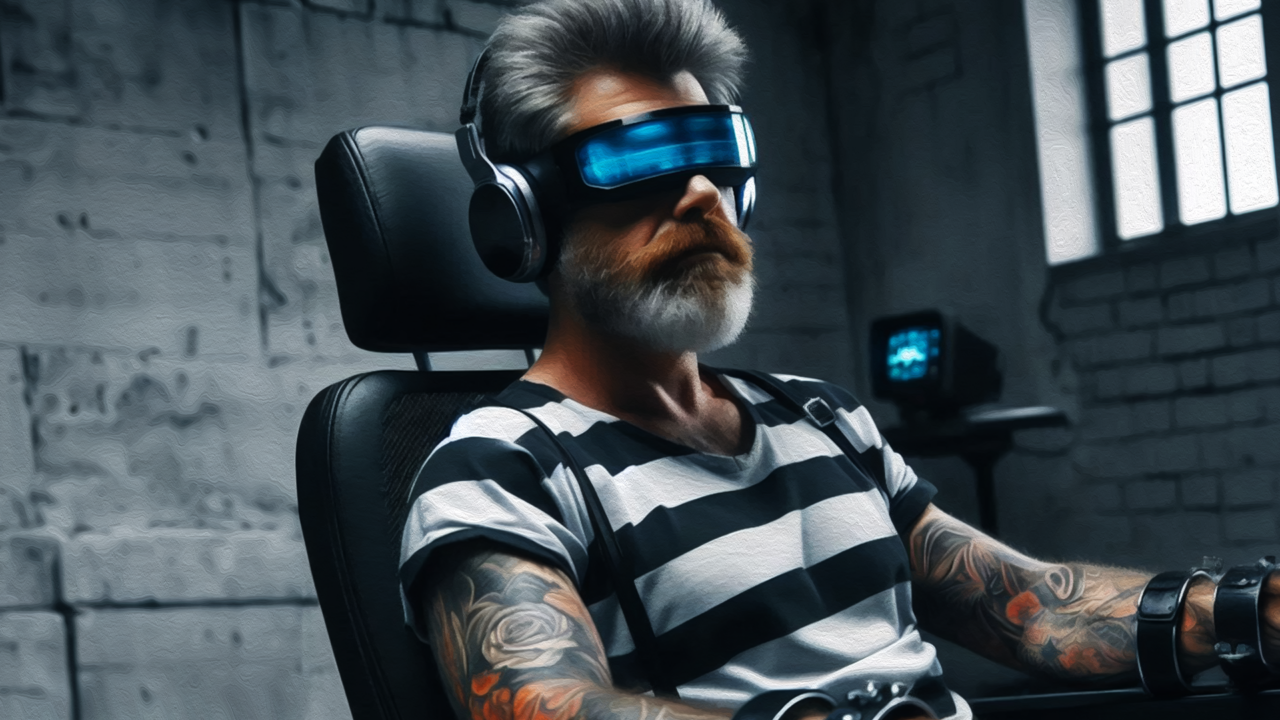Hashem Al-Ghaili, a Berlin-based scientist and filmmaker, envisions a future where prisoners are rehabilitated using implanted synthetic memories created by AI. His MO is to instil a sense of empathy and cut lengthy sentences from years to a matter of minutes.
Having cut his teeth in the realm of independent filmmaking, Hashem Al-Ghaili has certainly let his mind run wild with this controversial concept.
Presumably after binging Black Mirror and the Matrix boxset for the umpteenth time, the Berlin-based scientist has started pushing what he believes could be a revolutionary solution to prison overpopulation and re-offenders.
Officially dubbed Cognify, Al-Ghaili’s conceptual project centres on the premise that prisoners should be offered a choice upon sentencing: either serve your time in full, or sign up for a neural implant and a technology-induced epiphany – achievable in less than an hour.
Choosing the latter option would first involve a detailed assessment and mapping of the individual’s psychological profile and cognitive functions. After discovering what makes them tick, and indeed offend, they would be hooked up to virtual reality equipment and immersed in synthetic memories created using AI.
Each experience would be wholly unique, showcasing the perspective of victims and all they endured either during or as a result of an offender’s specific crime. For those without inherent remorse – i.e. psychopaths – the implant would theoretically impose feelings of guilt and regret by activating the amygdala, the part of the brain responsible for processing emotions.
While much like a regular dream, this experience would feel like a prolonged period of time in which a lengthy punishment is being served and rehabilitation is gradually occurring, the prisoner may only need a matter of minutes hooked up to the equipment to achieve that effect.
Basically, it sounds like a cocktail of Cyberpunk 2077, Interstellar, and just about every movie featuring a cryo-chamber.
To take stock, then, you’d have a revolving door of prisoners of all notoriety levels lining up, entering AI simulations, and leaving completely rehabilitated – all before the tech engineer has finished their lunch.
As you’ve probably deduced already, Cognify is firmly stuck in the conceptual stage and has no legitimate funding or backing, nor is there any indication that venture capital is incoming to reform any penal system. Someone on interim bail just punched their screen.
Despite my facetious tone, though, there is a need for innovation where human incarceration is concerned both practically and dutifully speaking. The global prison population is estimated to have increased by 24% since the year 2000 and statistics show that around 71% of released US prisoners face rearrest within five years.
It’s farcical to believe that the majority of offenders who get to leave prison will be completely renewed and law abiding for their stints, but a lot of prisons are reaching capacity and a change of approach may be needed. Just this week the UK has started releasing prisoners in efforts to ease overcrowding.
In that sense, the sentiment of what Al-Ghaili is trying to achieve is commendable regardless of how hokey it comes across – the whole stripping people of their autonomy and inducing psychological trauma bit, in particular.
Details aside, shifting the focus from punishment to rehabilitation is certainly a noble idea and that principle should be given genuine credence.
Besides, Al-Ghaili largely plies his trade in the social media/ influencer space. Perhaps his primary aim was always to drum up provocative conversations on the subject of prison rehabilitation. If so, Cognify can be considered a raving success.

















